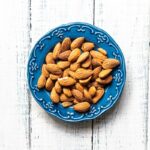Even though it tastes so darn good, we all know that junk food isn’t good for you. It can lead to unwanted weight gain, for one thing, and it can also be a source of harmful fats and sugars.
But did you know that junk food can actually decrease your cognitive skills, making you, well, lazy and stupid? Keep reading to see what research says about junk food and why is junk food bad for your health.
High-Fat, High-Sugar Diets and Decreased Brain Function
In a study published in the journal Neuroscience, researchers found that too much fat and sugar in a diet can have adverse effects on something called “cognitive flexibility”, or our ability to adapt to new and different situations.
And it doesn’t take long for this cognitive decline to occur. In fact, in just four weeks, mental performance can noticeably drop. And researchers believe that this comes about when the gut bacteria is compromised, thanks to a poor diet.
According to one of the research scientists, Kathy Magnusson, “This work suggests that fat and sugar are altering your healthy bacterial systems, and that’s one of the reasons those foods aren’t good for you. It’s not just the food that could be influencing your brain, but an interaction between the food and microbial changes.”
In fact, without necessary gut bacteria, the brain doesn’t function at optimal levels, leaving people to perform poorly in cognitive tests.
High-Fat Foods Can Make You Lazy
A study, published in the FASEB Journal, found that even short-term diets, which are high in fat can lead to a quick decrease in physical performance. While this study observed rats and not humans, they found that their subjects were only able to complete their usual physical exercises 50 percent of the time after only 9 days of high-fat foods.
How does this occur? In a junk food diet, where close to 50 percent of calories come from fat, the heart and other muscles become less efficient. What’s more, the heart may also need to increase in size in order to successfully pump blood and oxygen to the muscles.
According to Professor Jeremy Pearson, who funded this research, “In little more than a week, a change in the diet appears to have made the rats’ hearts much less efficient.”
While further studies are necessary to examine the effects of junk food diets on human subjects, these findings are a good reminder that we, too, can be vulnerable to the negative impact of high-fat, high-sugar junk foods.
The change in muscle strength is just one reason why high-fat foods lead to laziness and lower endurance levels.
Junk Food Can Change Brain Structure
Not only do high-fat diets weaken the physical body, but they also interfere with your brain function, too. In fact, cognitive decline, such as making frequent mistakes, forgetfulness, and poor judgment, along with dementia, can be associated with too much junk food.
In the words of Dr. Gerald Weissmann, too much junk food “might be a great treat for our taste buds, but they might send our muscles and brains out to lunch.”
Susan Carnell, Ph.D., an obesity researcher, warns that junk food “could permanently affect your brain.” For example, if you consume a diet high in fats and sugars and develop obesity, the frontal, temporal, and subcortical areas of the brain can actually shrink.
Why is that a problem? Perhaps once you understand what these brain regions are responsible for, you’ll know why it’s so important to keep them strong and healthy.
- The frontal brain is involved with memory, language, and judgment.
- The temporal brain is connected to auditory perception, like hearing.
- Finally, the subcortical area of the brain comprises many important brain regions, including the basal ganglia, limbic system, thalamus, and hypothalamus. Therefore, attention, relaying information, emotions, and memory are all involved here.
As you can see, having any of these brain regions shrink is pretty alarming, but obesity can contribute to this decrease in brain matter. That’s a good reason to cut back on junk food.
Too Much Sugar Impacts Your Brain Function
According to a 2012 study from the University of California Los Angeles, a diet high in fructose sugar can hamper memory and learning. Professor of Neurosurgery Fernando Gomez-Pinilla says, “Eating a high-fructose diet over the long term alters your brain’s ability to learn and remember information.”
While fructose occurs naturally in fruit, that’s not the type of sugar that can be most harmful to the brain. Instead, it’s high-fructose corn syrups that make their way into the vast majority of foods and which interfere with learning and memory.
But the good news, according to Gomez-Pinilla, is that “adding omega-3 fatty acids to your meals can help minimize the damage.”
How to Stop Eating Junk Food
The best way to reduce how much high-fat and high-sugar foods you eat isn’t simply about cutting them out of your diet. Instead, it’s about replacing them with delicious, whole foods that nourish and satisfy your physical body and your brain.
For omega-3 fatty acids, which can counteract the damage of high-fructose corn syrup, make sure to eat the following foods:
- Oily fish (mackerel, salmon, cod liver oil, herring, Albacore tuna, white fish, sardines and anchovies)
- Walnuts
- Hemp and chia seeds
- Natto
- Egg yolks
To satisfy your sweet tooth without consuming too much high-fructose corn syrup, try to avoid products with added sugar. And one tasty way to do that is by eating whole fruits – and there are so many to choose from!
And while there are many types of fruits containing both low and high amounts of natural sugar, you can always enjoy low-sugar fruits, such as these:
- Apricots
- Cranberries
- Raspberries
- Blackberries
- Strawberries
- Figs
- Grapefruit
- Cantaloupe
- Tangerines and nectarines
While these fruits are sweet, they still have a pretty low sugar content compared to other fruits. What’s more, they’re also loaded with vitamins, minerals, and powerful antioxidants to support your health and wellness, too.
You are what you eat. So, why not consume foods that fuel your body and mind for greater physical and mental strength?








